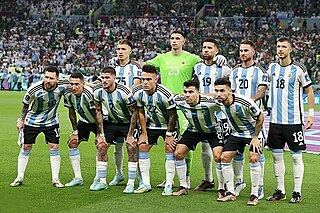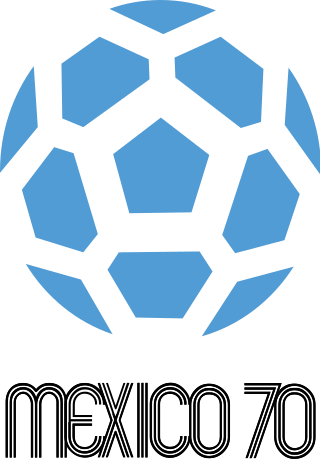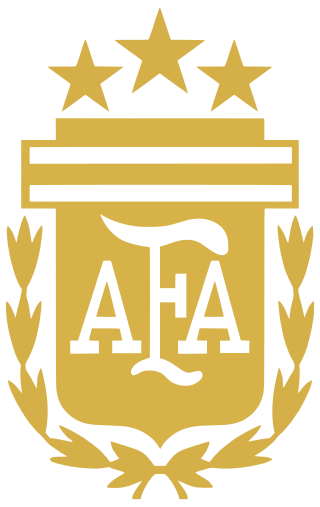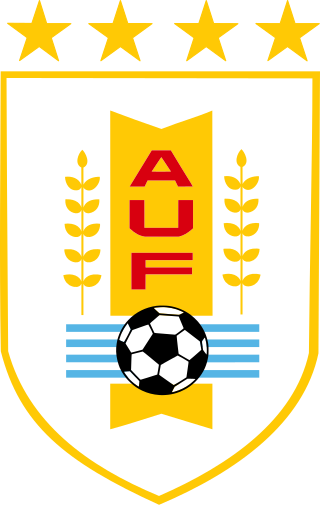
The FIFA World Cup, often simply called the World Cup, is an international association football competition between the senior men's national teams of the members of the Fédération Internationale de Football Association (FIFA), the sport's global governing body. The tournament has been held every four years since the inaugural tournament in 1930, with the exception of 1942 and 1946 due to the Second World War. The reigning champions are Argentina, who won their third title at the 2022 tournament.

The 1930 FIFA World Cup was the inaugural FIFA World Cup, the world championship for men's national football teams. It took place in Uruguay from 13 to 30 July 1930. FIFA, football's international governing body, selected Uruguay as the host nation, as the country would be celebrating the centenary of its first constitution and the Uruguay national football team had successfully retained their football title at the 1928 Summer Olympics. All matches were played in the Uruguayan capital, Montevideo, the majority at the Estadio Centenario, which was built for the tournament.

The 1970 FIFA World Cup was the ninth edition of the FIFA World Cup, the quadrennial international football championship for men's senior national teams. Held from 31 May to 21 June in Mexico, it was the first World Cup tournament held outside Europe and South America, and it was also the first held in North America. Teams representing 75 nations from all six populated continents entered the competition, and its qualification rounds began in May 1968. Fourteen teams qualified from this process to join host nation Mexico and defending champions England in the 16-team final tournament. El Salvador, Israel and Morocco made their debut appearances at the final stage.

The 1974 FIFA World Cup was the tenth FIFA World Cup, a quadrennial football tournament for men's senior national teams, and was played in West Germany between 13 June and 7 July. The tournament marked the first time that the current trophy, the FIFA World Cup Trophy, created by the Italian sculptor Silvio Gazzaniga, was awarded. The previous trophy, the Jules Rimet Trophy, had been won for the third time by Brazil in 1970 and awarded permanently to the Brazilians. This was the first out of three World Cups to feature two rounds of group stages.

The Argentina national football team represents Argentina in men's international football and is administered by the Argentine Football Association, the governing body for football in Argentina.

Mário Jorge Lobo Zagallo is a Brazilian former professional football player, coordinator and manager, who played as a forward.

The Uruguay national football team represents Uruguay in international men's football, and is controlled by the Uruguayan Football Association, the governing body for football in Uruguay. The national team is commonly referred to as La Celeste.
Pablo Justo Forlán Lamarque is a retired Uruguayan footballer, the father of Diego Forlán, and son-in-law of Juan Carlos Corazzo. His mother was of Uruguayan and Spanish descent.

Juan Eduardo Hohberg was an Argentine-born Uruguayan football player and coach. He is best remembered as a player for Peñarol (1949-59) where he won 6 Uruguayan Primera División title wins, and for playing for Uruguay at the 1954 FIFA World Cup - where Uruguay finished 4th. He was also Manager (coach) of Uruguay at the 1970 World Cup - they finished 4th

José Pedro Cea Urriza was a Uruguayan football player as a striker and coach.
Juan López Fontana was a Uruguayan professional football manager who won the 1950 FIFA World Cup as the head coach of the Uruguay national team.

Óscar Washington Tabárez Silva, known as El Maestro, is a Uruguayan professional football manager and former player. He most recently coached the Uruguay national team.
Wílliam Ruben Martínez Carreras was a Uruguayan footballer. He played 54 times for the Uruguay national football team between 1950 and 1965.

Emerich (Imre) Vogl was a Romanian football player and coach of Banat Swabian ethnicity who was a member of Romanian team which participated at the 1930 FIFA World Cup in Uruguay and 1934 FIFA World Cup in Italy.

The 1930 FIFA World Cup final was a football tournament match that culminated in the inaugural 1930 FIFA World Cup champions. Uruguay and Argentina contested in what was a rematch of the gold medal match of the 1928 Olympics, which Uruguay won after a replay.

Rodolfo Ariel Sandoval is a Uruguayan football midfielder who played for Uruguay in the 1970 FIFA World Cup. He also played for C.A. Peñarol.

Francisco Cámera is a Uruguayan football defender who played for Uruguay in the 1970 FIFA World Cup. He also played for C.A. Bella Vista. In Argentina, he played for Platense.

Ruben Laudelino Bareño Silva is a Uruguayan football forward who played for Uruguay in the 1970 FIFA World Cup. He also played for C.A. Cerro. In Argentina, he was played in Racing.
Djamel Haimoudi is an Algerian football referee. He has been a FIFA listed international referee since 2004.

The Brazil–Uruguay football rivalry, also known as El Clásico del Río Negro, or Clássico do Rio Negro, is a highly competitive sports rivalry between the Brazilian and Uruguayan national football teams, and their respective set of fans. Association football is the most popular sport in both countries and they have a combined 7 FIFA World Cups and 24 Copa Américas between them. Both countries also have a very close proximity and border each other, Uruguay only has a population of 3.5 million and has a size of 176,215 km2, while Brazil has a population of 210 million and a size of 8,515,767 km2, making it the 5th largest country in terms of both population and size.
















